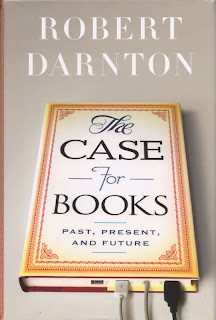Everyone that knows me obviously knows I like to read. I was given $80 in gift cards to Barnes and Noble for Christmas. I was just thinking about the fact that I have been given a lot of gift cards there over the years but never one to any other bookstore. There are three indies within the area as well as a Waldenbooks yet I've never been given a gift card to any of these. Granted Waldenbooks is closing at the end of January and it wouldn't make much sense this year but in the past, sure it would've been fine. Now there's no doubt about my support of indie bookstores. I am passionate about them and I am working towards having one.
However, the simple fact of the matter is that Barnes and Noble
gets it. They're doing every piece of book selling right from the commercial aspect down to the literary fanatic aspect. They've gotten large enough that they're cheap(economies of scale). Furthermore, they print their own titles allowing them to charge even less. I personally adore the Barnes and Noble classics where you can get the majority of great historical literature for less than $5. When Starbucks introduced this whole coffee revolution enticing people not to go do some activity but just meet everyone in the coffee shop sitting around for hours looking intellectual and talking in hushed tones, Barnes and Noble was there. The company scooped Starbucks up placing them in their stores so even if perhaps you don't read so much or don't plan on buying a book right now, you still might be willing to meet for coffee. If you're the least bit vulnerable when it comes to books (huge problem of mine) you'll grab something on your way out. Bam!... another niche: a grand one in fact.
I don't agree with the e-book situation that's on the brink of exploding right now (we'll discuss this another time) but Barnes and Noble is tackling it. Not only do they have their own personal e-reader out (the Nook) but they also allow you to download an e-reader for free for your PC. Furthermore, they have already become the largest supplier of e-books (last time I looked it was about 2 million). They pioneered the concept of the book superstore. They have a tremendous amount of new and used books offered online. Their inventory in the store is large enough to please any interest.
Borders is slacking. No coffee shops, no e-books or e-book reader, nothing new or innovative. Borders does not invite you to sit and spend your day there regardless of whether or not you're purchasing a book. It's not asking to be your third place (a home away from home or work... I love this concept so you'll see it often). Borders has far less community events and activities than Barnes and Noble. The selection is smaller. They choose mall locations for many stores rather than free-standing superstores. They also did not get online until August of 2008... umm hello, the Internet has been around for how long?
And... they're going out of business! Voila, there you have it folks. If you don't stay ahead of the curve, if you're not innovative, if you don't make a niche and another and another, you won't survive in today's marketplace. Borders closed 178 stores between 2001 and 2008. In January they're closing 200 more. They've had negative cash flow, negative net income, and have not paid a single dividend in at least the past three years. It may take many more years to close all of the locations but Borders is going out of business. There's no doubt about it.
I don't blame it on Barnes and Noble, or Amazon, Target, or Walmart. I blame it on the pure fact that Borders does not change. The company refuses to niche market and really appeal to what their customers are looking for. It's sad to lose so many bookstores but really, how could anyone not have seen this coming?



